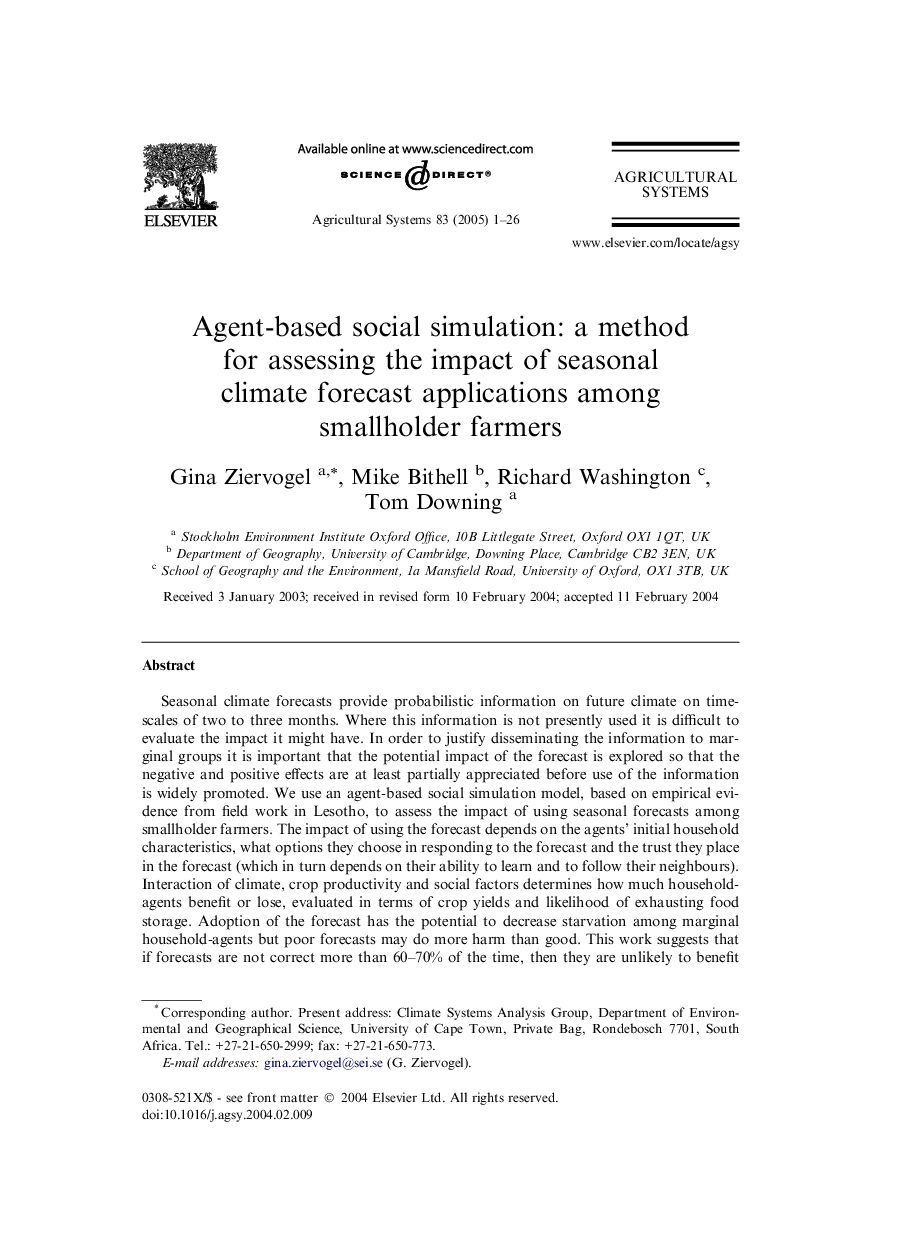| Article ID | Journal | Published Year | Pages | File Type |
|---|---|---|---|---|
| 9469217 | Agricultural Systems | 2005 | 26 Pages |
Abstract
Seasonal climate forecasts provide probabilistic information on future climate on timescales of two to three months. Where this information is not presently used it is difficult to evaluate the impact it might have. In order to justify disseminating the information to marginal groups it is important that the potential impact of the forecast is explored so that the negative and positive effects are at least partially appreciated before use of the information is widely promoted. We use an agent-based social simulation model, based on empirical evidence from field work in Lesotho, to assess the impact of using seasonal forecasts among smallholder farmers. The impact of using the forecast depends on the agents' initial household characteristics, what options they choose in responding to the forecast and the trust they place in the forecast (which in turn depends on their ability to learn and to follow their neighbours). Interaction of climate, crop productivity and social factors determines how much household-agents benefit or lose, evaluated in terms of crop yields and likelihood of exhausting food storage. Adoption of the forecast has the potential to decrease starvation among marginal household-agents but poor forecasts may do more harm than good. This work suggests that if forecasts are not correct more than 60-70% of the time, then they are unlikely to benefit poor farmers. Poor forecasts, or forecasts that fail badly, when they do fail, lead to longer adoption timescales for forecast use. Further investigation into the impact of the forecast at the village level is encouraged before dissemination is actively pursued without appreciating potential impacts.
Related Topics
Life Sciences
Agricultural and Biological Sciences
Agricultural and Biological Sciences (General)
Authors
Gina Ziervogel, Mike Bithell, Richard Washington, Tom Downing,
